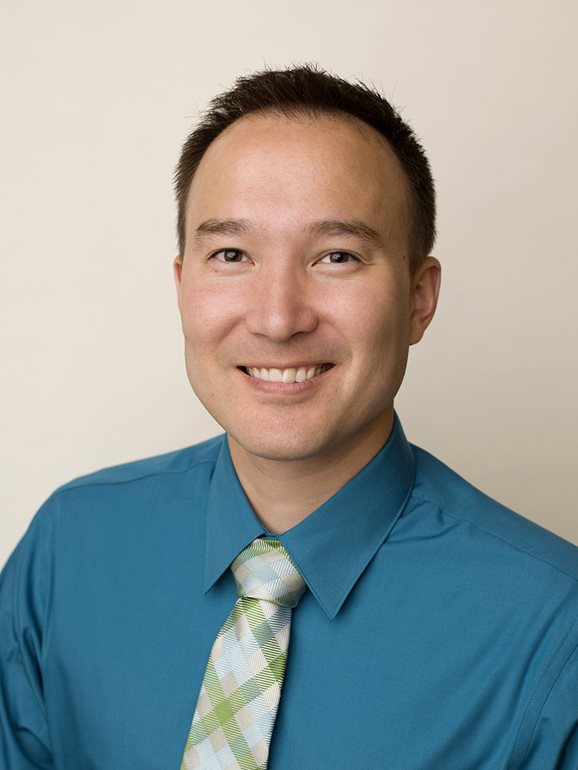
David Rainey was a nontraditional student in the University of Washington Bothell’s Master of Education program. Most M.Ed. students are teachers. Rainey was a medical student at UW Seattle.
He specifically wanted to attend UW Bothell to add a master’s in Education to his medical degree, said Brad Portin, who was Rainey’s faculty adviser and now is professor emeritus in the School of Educational Studies. Rainey received his M.Ed. in 2014 and M.D. in 2015.
“It really served me well in terms of giving me more of the academic language and background in how medical education has evolved over the last century in the United States,” said Rainey, who works as assistant director of the Occupational and Environmental Medicine Residency Program at Harvard’s T.H. Chan School of Public Health.
Wearing many hats
Rainey also is an instructor at the Harvard Medical School and consulting medical director in occupational health at the Massachusetts Institute of Technology.
He said he “wears all these hats” out of his primary job at the Cambridge Health Alliance occupational health clinic in Boston. He spends about 80% of his time in the clinic seeing patients and training medical residents, the rest of his time teaching or doing administrative work.
The M.Ed. gave him the “tools and framework to evaluate how medical education is being done and what aims and goals we’re serving and not serving,” Rainey said. The knowledge of curriculum design and learning environments was really valuable, he said. “It’s something I’ve been able to put to use.”
The master’s degree started him on a career path into academic medicine that led to his current position, Rainey said.
“The things I learned through the M.Ed. at UW Bothell help inform how I teach my own class and also how I look at global issues around education reform.”
Research and education
Occupational medicine doctors specialize in workplace health and safety. Rainey’s own research has been in firefighters’ health and nutrition.
“The No. 1 cause of on-duty death is not the fire, not injuries, not smoke inhalation; it’s sudden cardiac death,” Rainey said. “A lot of it can be mitigated by reducing firefighter risk factors for cardiovascular disease.”
It’s more challenging than telling firefighters they need to eat healthier and exercise, Rainey said. “It’s really a cultural issue, and the senior officers set the tone in terms of what’s for lunch and what’s for dinner. We’re trying a lot of educational initiatives.”
Rainey retains his interest in medical education reform and how schools balance physician training with research and clinical enterprises.
“I’m interested in having the best medical instruction available to all students,” Rainey said. “I would like to see content between medical schools shared more universally and a greater emphasis placed on simulation, skill development and clinical training locally.”
Boise to Bothell
While Rainey was a UW Bothell student, he was living in his hometown, Boise, Idaho, with a young family. Portin was supportive and flexible in customizing courses with independent study in the areas of medical education and education technology. Rainey would travel once or twice a month to Bothell and stay a week or more. It helped that his wife’s family lives in Bothell.
Portin said having a medical student in the M.Ed. program showed students issues in both fields.
“Medical and education quality and access share many elements,” Portin said. “We were fortunate to be able to work with Dr. Rainey.”
Rainey valued his one-to-one meetings with Portin and fondly recalls discussions with Professor Wayne Au and Senior Lecturer Karen Gourd, who has since retired.
“Another thing unique to UW Bothell was the strong emphasis on social justice in education,” Rainey said. “A lot of things that I read — that I might not have otherwise come across — were very enlightening and helped shape my perspective.
“They also opened my eyes to issues in medicine, such as the selection process for students in medical schools, and helped me think about the ways we institutionally discriminate against people of various backgrounds and how we might go about changing that,” he said.
M.Ed. moves forward
The School of Educational Studies has recently completed the redesign of its M.Ed. program, offering a newly enhanced course of study. The goal is to maintain a top-tier academic program that better meets the needs of educators in a diverse array of disciplines in an accessible, affordable and inventive way.
Applications for the M.Ed. will open in autumn 2019 with the first cohort of the updated M.Ed. program beginning in autumn 2020. Learn more about the UW Bothell Master in Education program.



